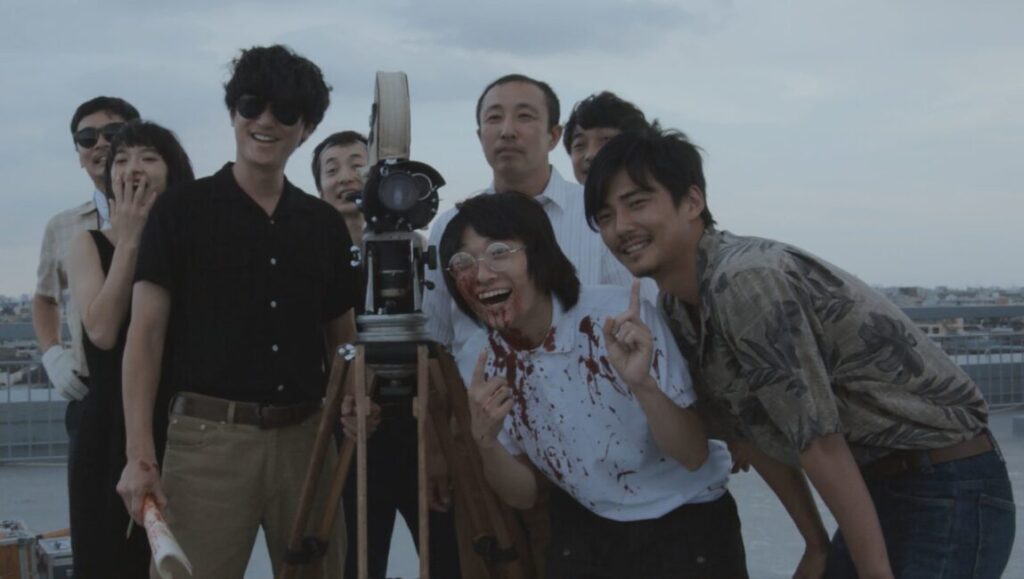Kazuya Shiraishi’s Dare to Stop Us is something of a biopic on late Japanese filmmaker Koji Wakamatsu, who, with films such as The Embryo Hunts in Secret and Go, Go, Second Time Virgin in the late 1960s, and Ecstasy of the Angels, in 1972, combined the “pink film” sexploitation genre with radical Leftist politics to create potent, energetic anti-establishment art. Instead of focusing on Wakamatsu directly, however, Shiraishi explores three years (’69-’72) in the life of Wakamatsu Productions, but as viewed through the lens of another character: Megumi Yoshizumi (Mugi Kadowaki), apparently the sole female presence on the production side during this period. A fan of Wakamatsu’s films, she’s brought to a film set by a friend, and introduced to the director himself (played by Arata Iura).
Megumi’s first days at Wakamatsu are a pretty rough trial by fire, as she’s subjected to the auteur’s gruff, demanding ways. Slowly, though, she learns to navigate the internal and external politics that affect Wakamatsu’s company, most notably the philosophical split between Wakamatsu — largely concerned with keeping the company financially afloat — and his screenwriter and chief collaborator, Masao Adachi (Hiroshi Yamamoto), who’s more purely dedicated to making politically committed work, regardless of box office results. Megumi eventually gets to make a short film of her own, but this is hardly a feminist portrait of triumph. Instead, Shiraishi has created a work much more confused in its intentions. It’s a film featuring a radical artist that’s not the least bit radical in its form, and a film with a female character at its center in which the men emerge victorious, while the woman becomes a tragic figure. These factors, along with the one-dimensional flatness of most of its characters, hold Dare to Stop Us back from being the truly illuminating portrait of its time and place that it could have been.
Published as part of New York Asian Film Festival 2019.


Comments are closed.